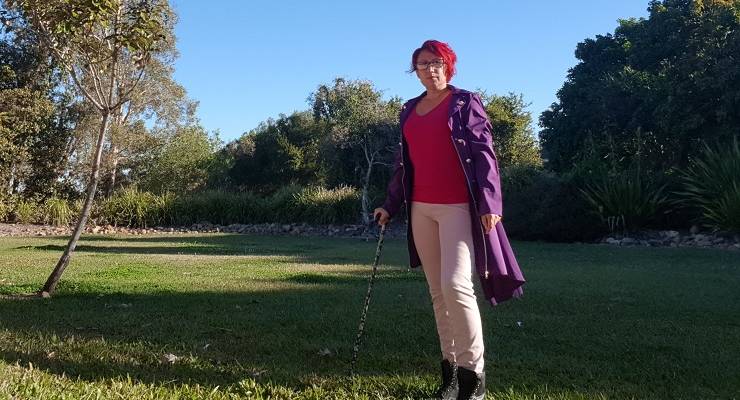
Elisha Mathews’ world collapsed around her in 2014. She and her husband divorced (“he thought it was OK to put all his money in a poker machine”) and she discovered that she was liable for his business loan that she could not service.
At the same time, Mathews was diagnosed with a neurological condition, unable to work and supporting herself and her two children on a disability pension.
She was forced into bankruptcy, yet had an agreement with her bank that she was not liable for repayments on the business loan. The bank, however, incorrectly assigned the alleged debt to Panthera who set about collecting it.
Mathews, who lives in Brisbane, was pursued for 12 months by Panthera over an alleged $800 debt she did not owe. Her case is not among the 100 listed by the Australian Competition and Consumer Commission (ACCC) because she has never lodged an official complaint.
“Every time I spoke to them they insisted the debt was legitimate,” Mathews recalls. “I tried to explain to them what had happened. They said it wasn’t their problem.”
Mathews says the calls from Panthera continued. “I started researching online about what to do about debt collectors and I ended up quoting the legislation back to them. When they called me I would say to them: ‘you’re not allowed to call me this often’. They would say ‘we didn’t get a resolution from you so yes we can’. They didn’t really care.”
Mathews says Panthera’s call centre staff were “very abrupt, very assertive and on several occasions they were borderline abusive”.
“They tried to belittle me. It was very degrading and very frustrating.”
It took close to two years for Panthera to accept that the bank had made a mistake and that Elisha Mathews did not owe any money.
“I got to the point where I told them I was suicidal over this. And that’s what it took for them to actually stop and listen.”
Panthera declined to comment on Elisha Mathews’ case.








Is this the company that Nick Griener is involved in as I read he was with one of these debt collectors
Outsourcing utter bastardry and felonious activity is a feature of gov’t neoliberal policy, not a bug.
Does it surprise anyone that Nick Greiner would be involved in a company that hounds a woman with a neurological condition about a $800 debt?
I am sure that there a lot of people who have paid rather than fought.
I know that the original finding of being “corrupt” by ICAC, was overturned on appeal in NSW.
The details of the net worth declared in the property settlement between he and Catherine, was approximately $800.000.000.
He must have been a very astute businessman, because he was the child of penniless refugees at the end of WW11.
Panthera are thugs pure and simple
They call themselves “lifestyle management consultants” lol
Forgive meas this is old, And so they manage you out of your lifestyles??
A few years ago mate of mine had a life threatening condition that required horrific surgery; basically in an induced coma with his internal organs in a neat pile being flushed/rinsed for three days.
He then had eight weeks off work and applied for Sickness Benefits. After many weeks of being stuffed around with contradicting advise from CNTLNK staff he was finally told he was in fact entitled to payments and would receive his first within a week.
When no payment arrived he was then told he in fact did not qualify as he had too much money in his bank account; it was $1,300 put aside for mortgage payments. So in fact he received nothing and finally was well enough to go back to work.
Fast forward to early this year and he rec. a robo debt order for $1,500. I pleaded with him to see a lawyer and fight it but he is the type to not fight the ‘powers that be’ and so entered in to a payment agreement.
This story shows that one does not have to have received a welfare payment to receive an illegal debt notice, just registering with CNTLNK is enough to trigger a ficticious debt.